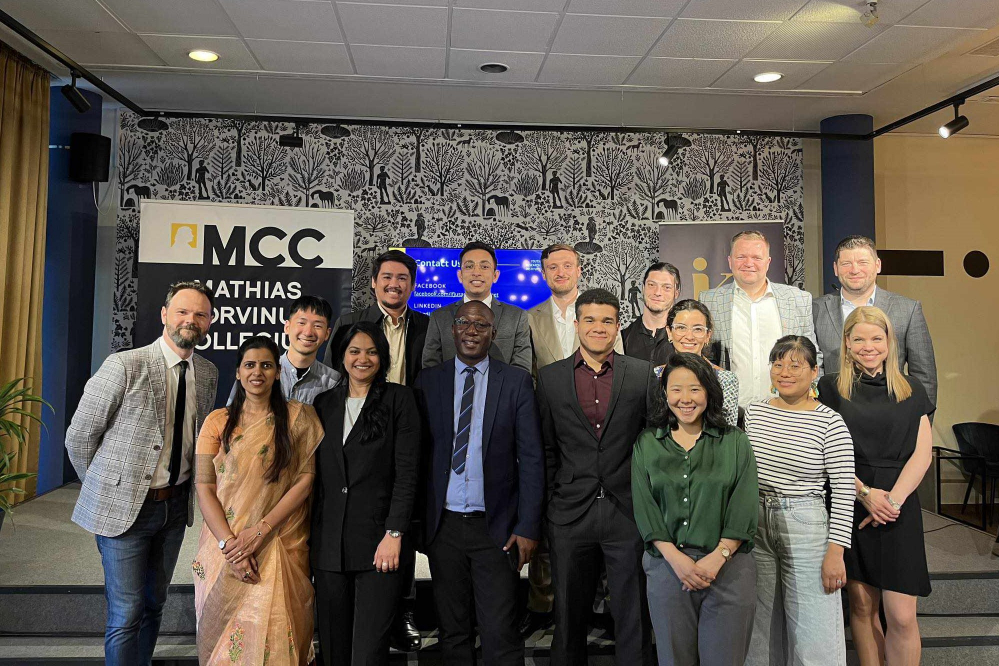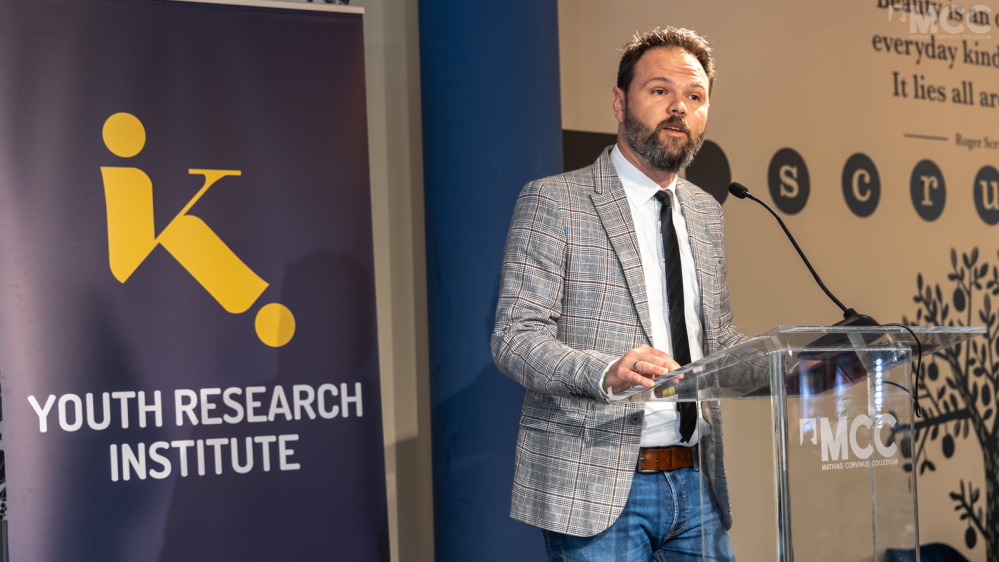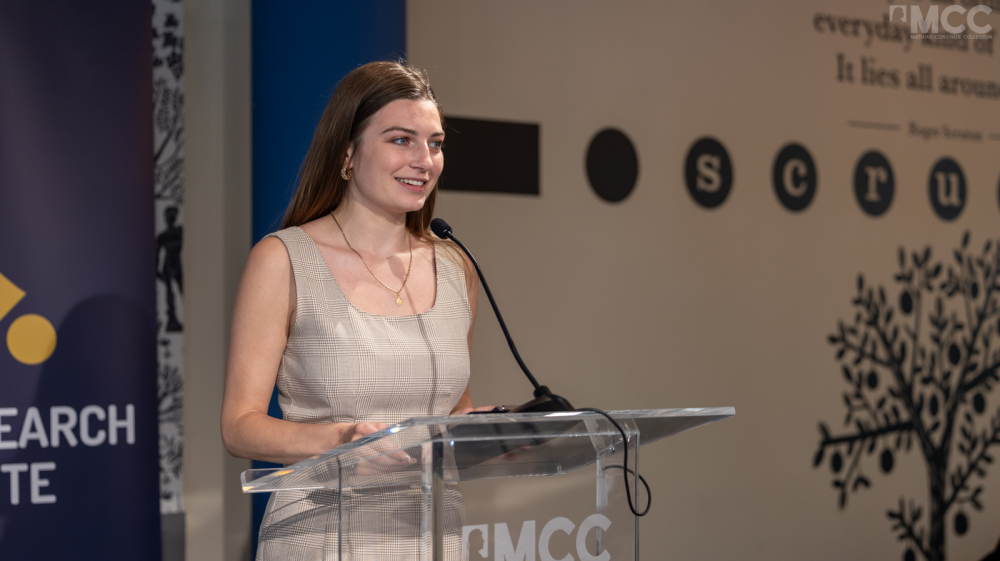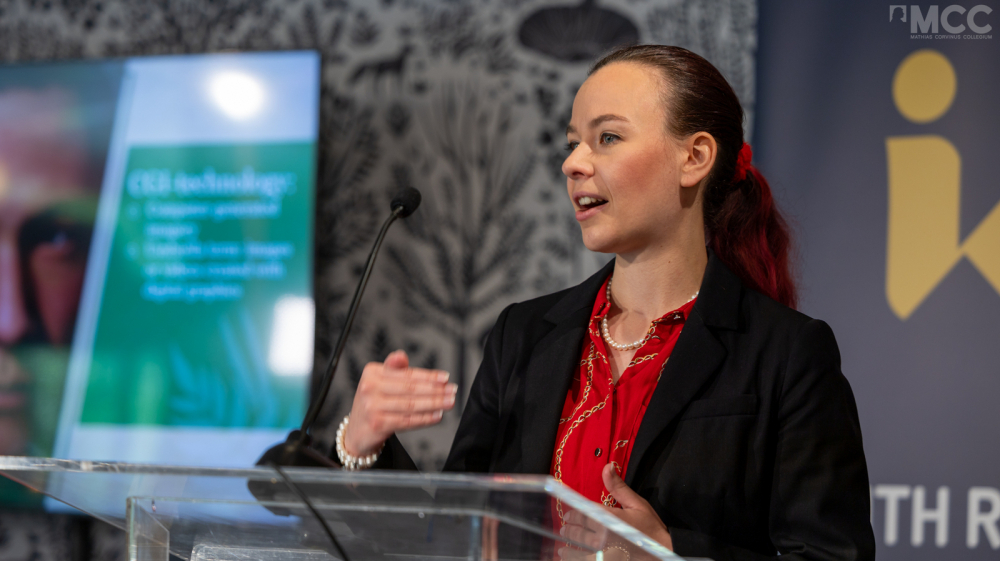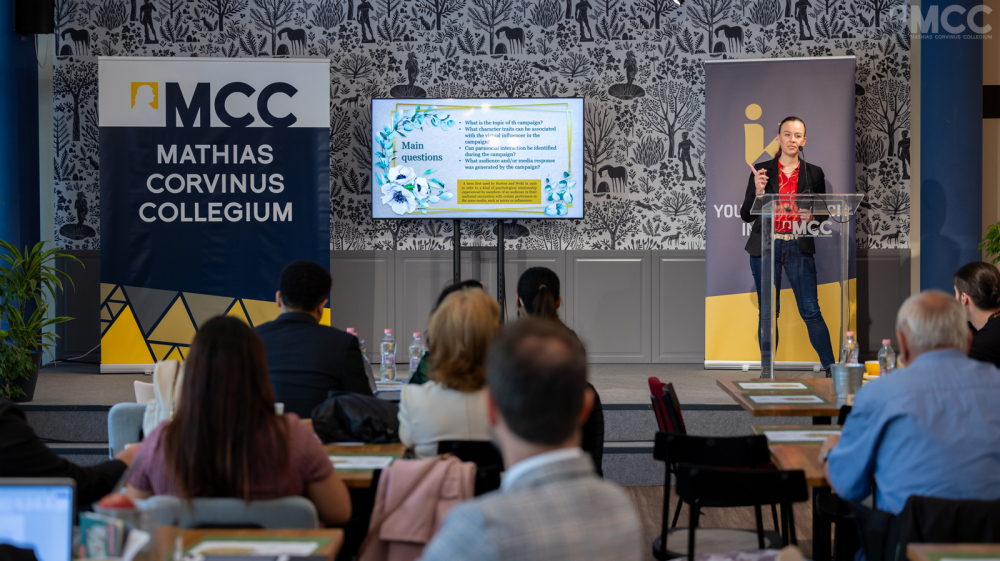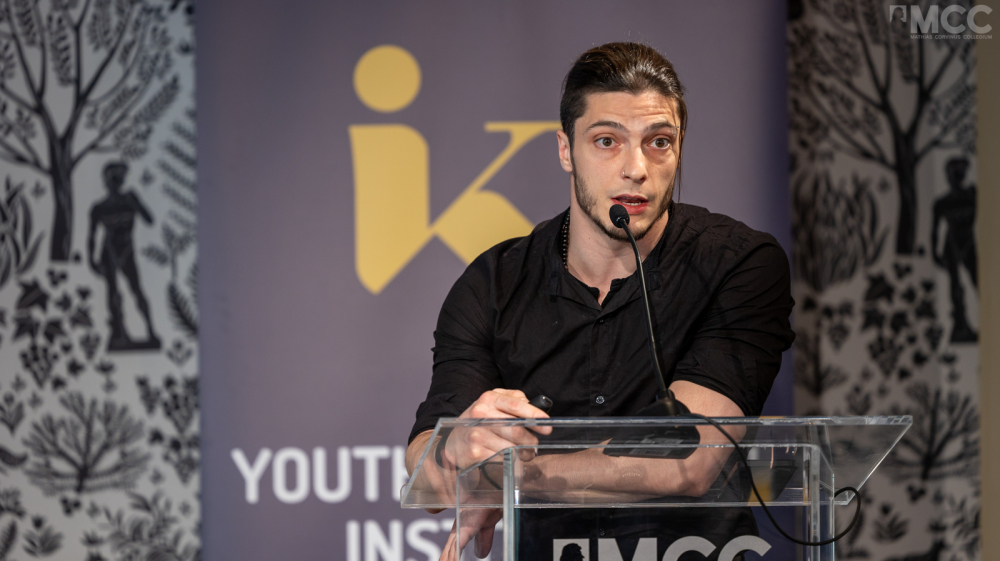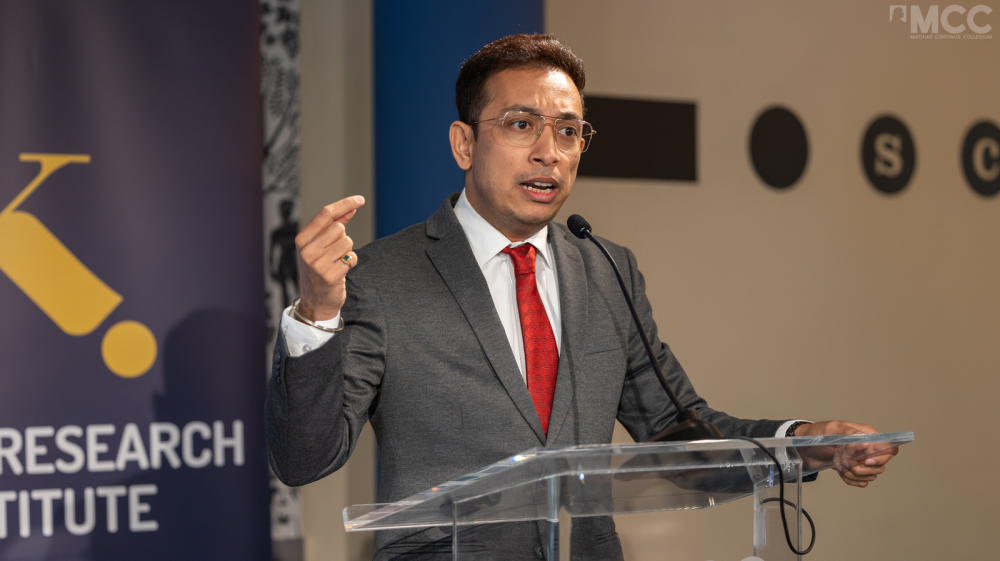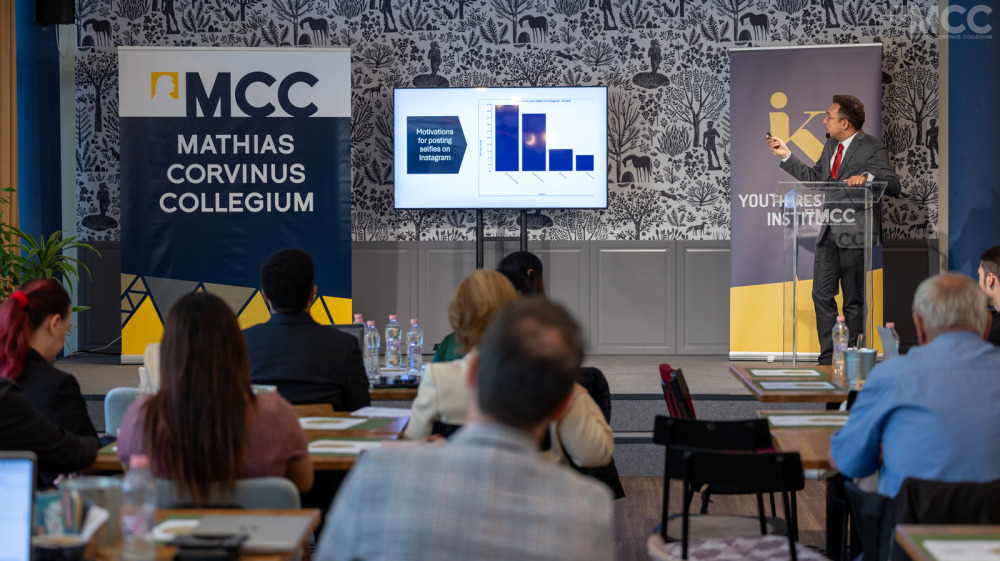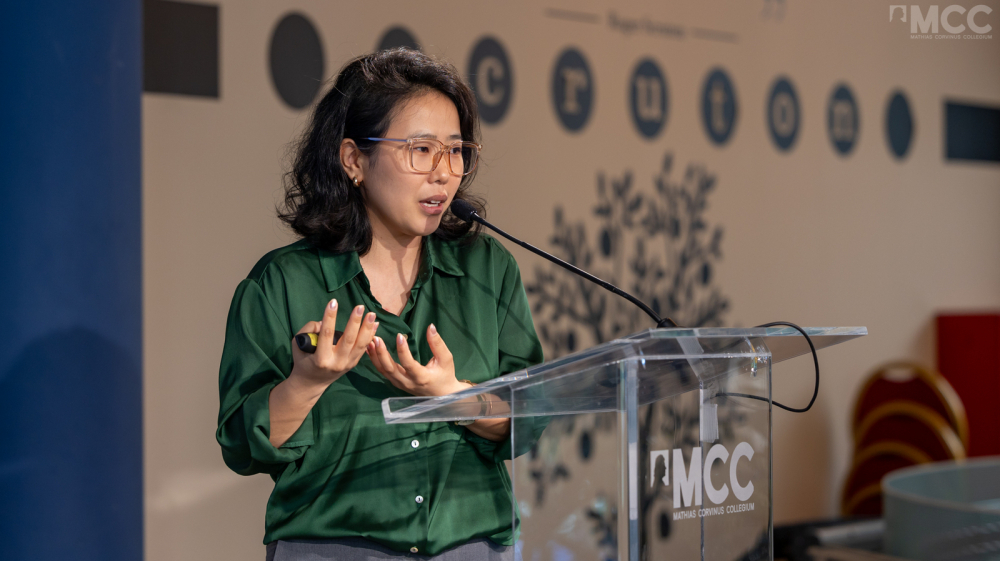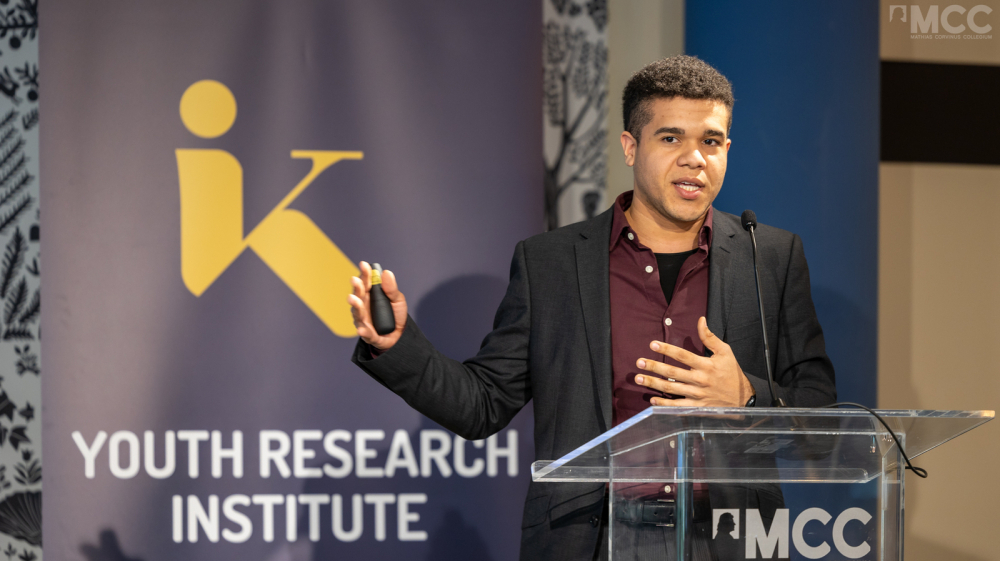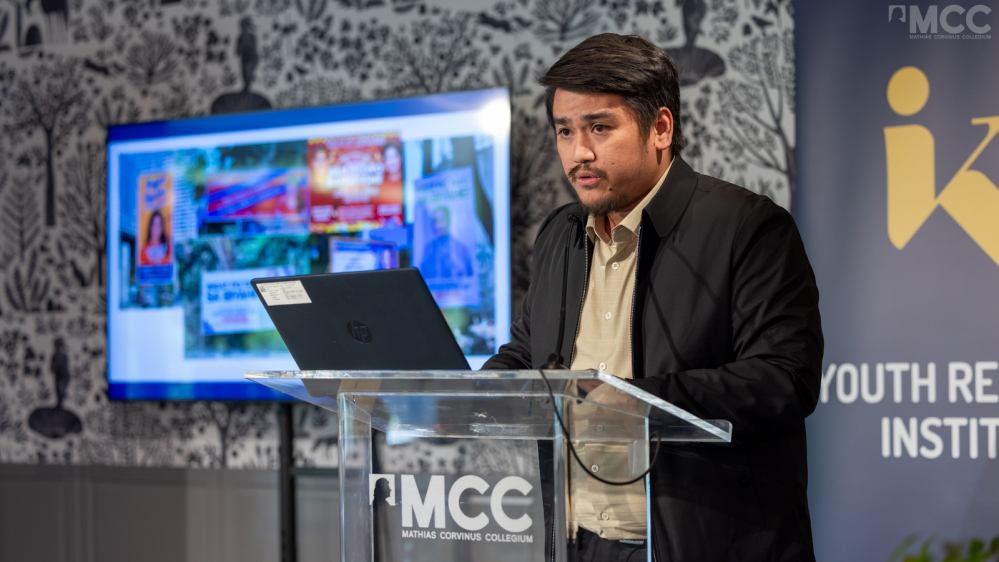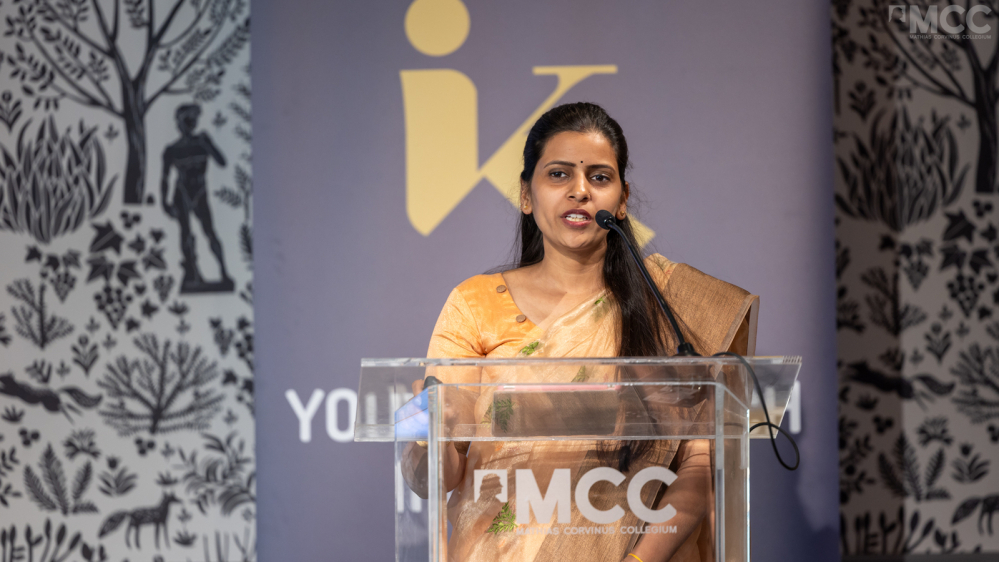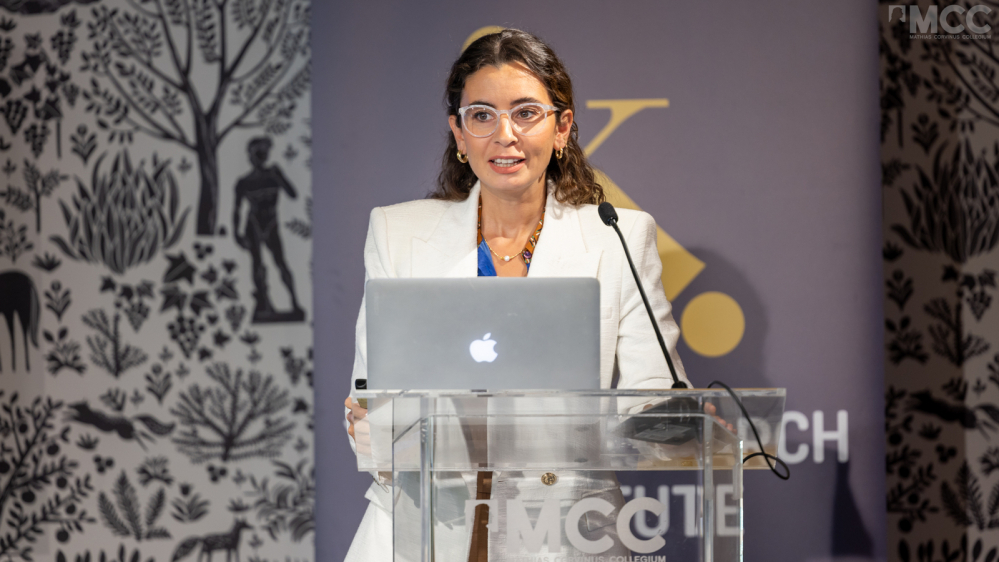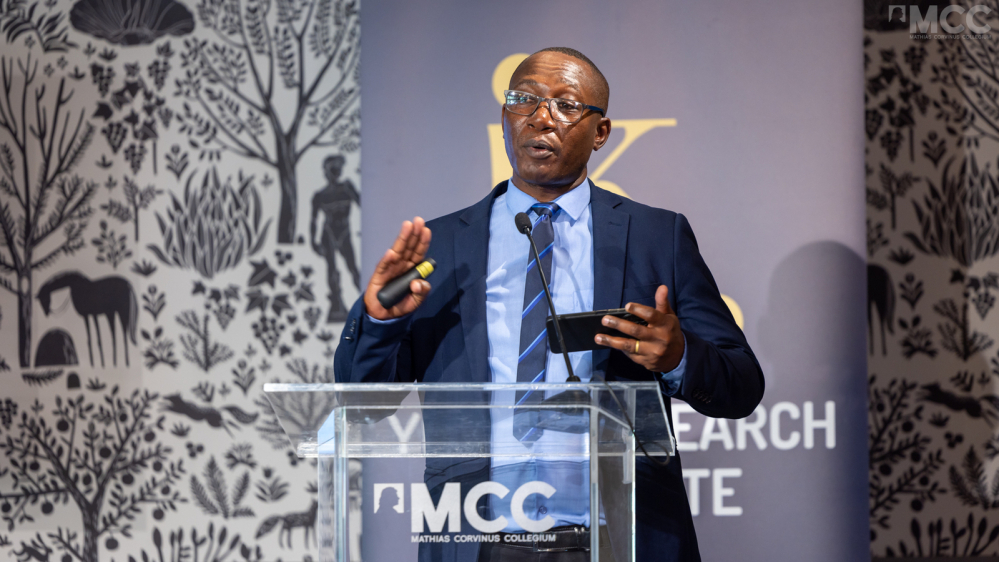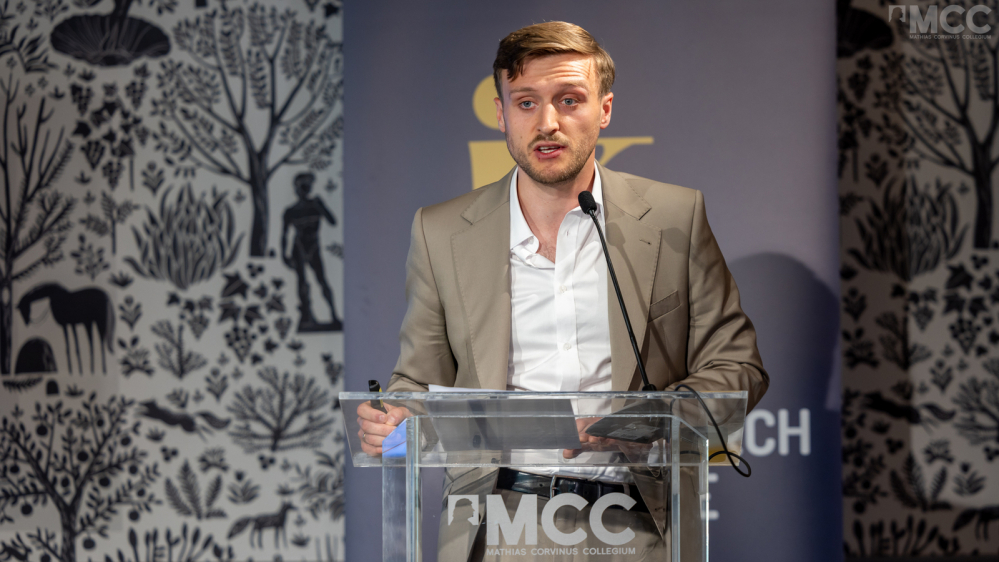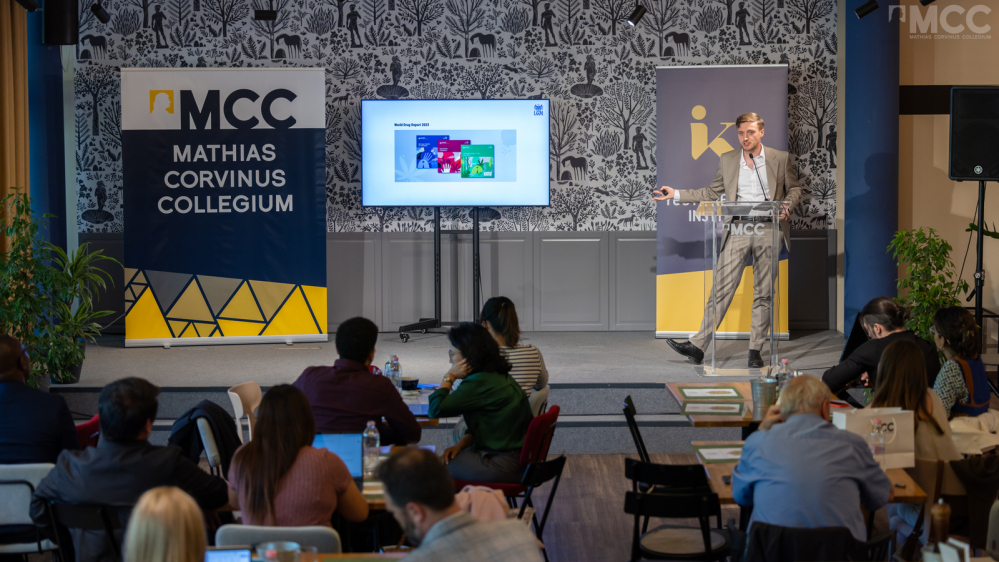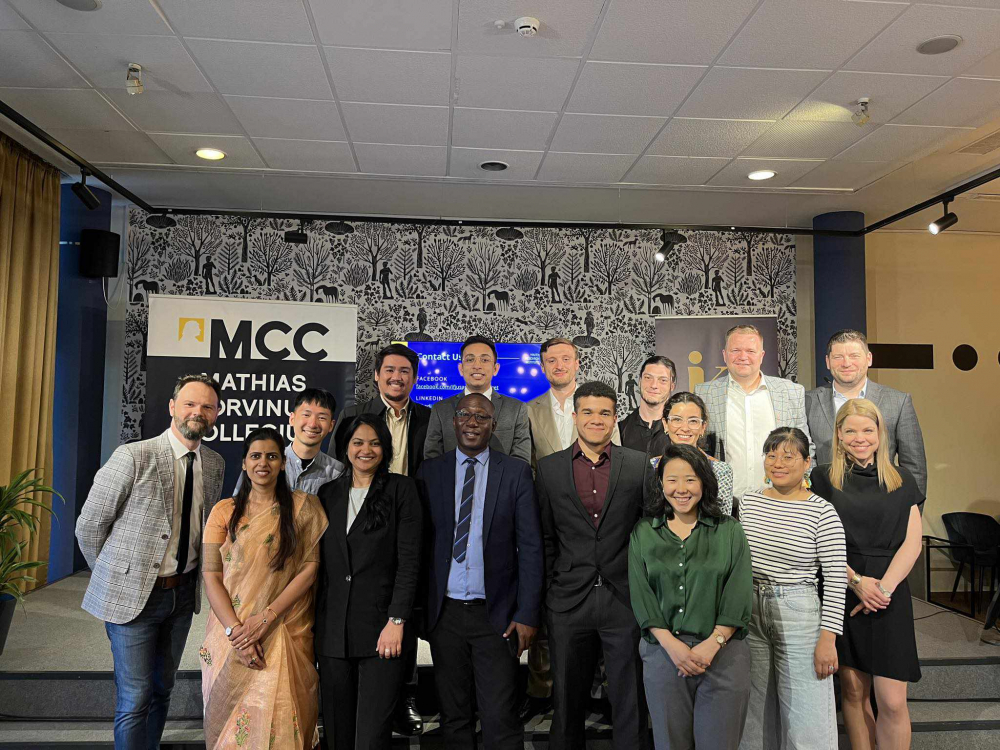Emerging Voices: Perspectives from the next generation of scholars in youth research was a vibrant event that brought together young minds to tackle pressing issues faced by today’s youth. Organized by MCC’s Youth Research Institution on May 14, 2024, at the Scruton Café in Budapest.
The one-day-long conference featured four segments on the hottest topics regarding youth in 2024: AI, education, politics, and mental health. The panels and presentations throughout the day not only provided valuable insights but also allowed ample time for networking and refreshments, ensuring a well-rounded experience for all attendees. Youth Research Institute Director, Székely Levente, started off the day with some opening remarks. He drew attention to the potential for cooperation among the group of international, young researchers present
Artificial intelligence, technology, and self-expression
The first lecture, “The Participation of Anthropomorphic Virtual Characters in Social Movements,” was delivered by Evelin Horváth, a PhD student at Corvinus University in Budapest. Horváth explored the fascinating world of artificial intelligence and CGI (computer-generated imagery) and its impact on youth. She discussed how marketing campaigns utilize anthropomorphic characters and figures instead of real humans. While she acknowledged the environmental and time benefits of AI-generated characters in getting rid of the need for enormous efforts to conduct professional photo and video shoots, Horváth also raised concerns about the potential overshadowing of their intended messages by their novelty.
Following Horváth, Michele Varini from the Catholic University of the Sacred Heart in Milan presented “Code Culture.” Varini’s lecture delved into the intersection of gaming and fashion, illustrating how virtual characters reflect real-world class distinctions and fashion trends. He noted that during the COVID pandemic, games like “Animal Crossing” became platforms for fashion expression, mirroring events such as Milan Fashion Week in the virtual world. Varini made a compelling argument that virtual reality increasingly mirrors real-world fashion and is a means of self-expression.
Nilotpal Bhattacharjee from Assam University in India presented “Behind the Filter: A Study on the Effects of Instagram Selfies on Body Image Perception Among Young Indian Adult Females.” The young researcher and PhD candidate conducted a study himself via a group of interviews. Bhattacharjee highlighted the negative consequences of selfies, revealing that India has the highest rate of selfie-related accidental deaths. His data showed that social validation, gaining followers, and emulating celebrities were primary reasons for selfie culture, rather than personal pleasure. Bhattacharjee concluded with a call for body positivity and acceptance over harmful social comparisons.
International perspectives on education anchored in Budapest
The next segment focused on education, starting with Byambasuren Nyamkhuu from Mongolia but currently studying as a PhD student at Eötvös Loránd University; she shared her own personal experiences through a constructive format in her presentation, “Coping with Academic Stress: My Doctoral Journey in Hungary as an Asian Student.” Nyamkhuu spoke about balancing academic pressures with social life and adapting to cultural differences, such as addressing professors on a first-name basis. Her message emphasized the importance of maintaining relationships and adapting to life changes.
Adrian Estrela Pereira, also from Eötvös Loránd University, followed with “Digital Transformation: A Pathway to Connect Higher Education Institutions to the Requirements of Increasingly Digitalized Interrelated and Global Societies.” Pereira highlighted the necessity for schools to adapt to technology and emphasized effective marketing and ongoing professional development for teachers. This PhD candidate hailed originally from Brazil and was heavily involved in a UNICEF study in the South America examining the digital transformation processes among education systems. Pereira was responsible for the Brazilian portion of the study.
Thiri Pyae Kyaw, the third international student from Eötvös Loránd University, then presented “Epistemological Beliefs and Teaching-Learning Perceptions: A Systematic Literature Review.” She originally came from Myanmar but has immersed herself in studying the Hungarian education systems as well. Kyaw discussed how pre-existing beliefs affect knowledge acquisition and stressed the need for more research on learning processes in various cultural settings.
Youth political activity in a super election year
The third panel revolved around politics, starting with Mark Gabriel Wagan Aguilar from Southern Philippine Academy College, who presented “Generational Perspectives Toward Premature Campaigning and its Perceived Influence on Voting Preferences.” Aguilar examined the negative impacts of premature campaigning in Filipino elections and recommended better public education on the topic. Interestingly, citizens as young as 16 can not only vote but take on political positions making the Philippines a particularly interesting subject in the realm of youth research.
Chiao Li from Sciences Po University in Paris focused on youth voter turnout in the 2019 EP election in her presentation. Li explained that younger voters are motivated by different factors than older generations, emphasizing their unique civic pride and identity within the EU. Motivations connected to the environment, European identity, and concerns regarding migration are most prominent based on the latest data. In the particularly relevant European Parliamentary coming up, youth participation is predicted to decline.
Dr. Shalini Garg from the Government of Rajasthan in India discussed “Youth Led Cooperatives,” outlining how cooperatives can achieve common goals through democratic means. She emphasized the importance of innovation, advocacy, capacity building, and leadership in cooperatives, noting the UN's prediction of 2025 as the “year of the cooperatives.” She presented specific examples in agriculture that brought major progress.
One of the hottest topics of 2024 and beyond: Mental Health
The final panel dealt with mental health, beginning with Nurdan Kozan Caki from the University of Essex, who presented “A Psychodynamic Interpretation of Suicide in Young Adulthood.” Caki explored risk factors, the vulnerability of youth, and the importance of diagnosis and prevention in addressing youth suicide. She discussed how the period of youth is particularly prone to crises like suicide and suicide attempts.
Erna Földvári-Uricska from Corvinus University followed with “The Coronavirus Pandemic, the Challenges and the Aftermath,” talking about how new expressions like virus-diaries and memes helped youth cope with the COVID pandemic. She prepared surveys which were filled out widely in a specific Hungarian university, via social media, and she also received submissions from a handful of other European coutnries. In this manner, Földvári-Uricska compiled her own list of terms that were invented or popularized during the pandemic, called the Covid dictionary. She highlighted the role of social media in forming a new lexicon and aiding mental health so that people could share their experiences to some extent.
Crispen Batsirai Marasha from Stellenbosch University in South Africa came next with a rather different topic relating to youth involvement in religious cults: “Interrogating the Impact of Religious Cults on the Mental Health of Youths Involved in Zimbabwe.” Marasha examined the manipulation of youth by cults and emphasized the need for more research to understand this phenomenon. He then outlined Bronfenbrenner’s Theory, an ecological systems theory, which may explain why youth may be more likely to join a cult based on their early childhood environment.
The final speaker, Hubert Antokolski from Adam Mickiewicz University in Poland, presented on “Psychoactive Substances in Modern Society.” Antokolski reviewed the history of drug usage, the varying classification of drugs and their legality, and the media coverage surrounding, especially in the past decade in Poland. He utilized an expansive database compiled by his university of essentially all media coverage in Poland to examine how drugs are discussed in the public sphere. Antokolski argued that overregulation can sometimes exacerbate addiction issues, while highlighting the immense dangers and threats posed by alcohol which is a legal substance.
The Emerging Voices Conference concluded on a hopeful note, offering innovative solutions and strategies for youth to navigate the challenges of the modern world. Each speaker brought unique perspectives and valuable insights, making the conference a resounding success and sparking motivation for further cooperation among international actors and the Youth Research Institute.

